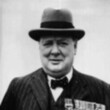Five Days in London: May 1940
(Libby/OverDrive eAudiobook)
Available Platforms
Description
More Details
Excerpt
Similar Titles From NoveList
Similar Authors From NoveList
Published Reviews
Choice Review
Winston Churchill was not typical of the Conservative Party hierarchy of the interwar years--hence his constant quarrels with the Party and his "Wilderness Years" during the 1930s. This gap in outlook and style did not, of course, cease when WW II brought him back, first to the Cabinet Room, and then, in May 1940, to Number Ten Downing Street as leader of a coalition government. This is the background to the dramatic events of May 24-28 that are the focus of Lukacs's book. In the face of the stunning German operational success in France, the clearly imminent French withdrawal from (and Italian entry into) the war, and the probable loss of the bulk of the British Expeditionary Force, there was a prolonged struggle in the War Cabinet over the wisdom of continuing the war. The protagonists were Churchill and Lord Halifax. Chamberlain generally supported Halifax (who had been his heir apparent), while the two Labour Party members aligned themselves with Churchill. In the end Churchill won and led Britain through its "finest hour." He chose not to discuss the episode in his postwar memoirs, and the story emerged only after the archives were opened in the 1970s. Lukacs's spirited account will appeal to undergraduates and general readers. R. A. Callahan; University of Delaware
Booklist Review
Lukacs, who recently retired as a history professor at Chestnut Hill College, is a leading chronicler of modern U.S. and European history. Author of several broader studies of World War II and its major protagonists, he focuses here on a brief period in 1940 when Great Britain had to decide whether to fight on alone or negotiate with Hitler. Churchill had been prime minister for only a few weeks; his support, even within his own party, was wobbly at best. But the meetings of the British War Cabinet from May 24 to 28, 1940, with British troops surrounded at Dunkirk, produced a political and ultimately national commitment to resist the German juggernaut. Lukacs draws on government materials documenting the debates at these meetings, press reports, and the work of Britain's leading polling organization, Mass-Observation. He argues that, although the war could not have been won without the U.S. and Russia, Churchill's efforts in these key Cabinet meetings ensured that the war would not be lost before they joined the fight. --Mary Carroll
Publisher's Weekly Review
Eminent historian Lukacs (Thread of Years, etc.) delivers the crown jewel to his long and distinguished career with this account of five daysÄMay 24-28, 1940Ä"that could have changed the world." Lukacs posits that it was during those five days in London "that Western civilization, not to mention the Allied cause in WWII, was saved from Hitler's tyranny." A grand view, to be sure, but the consequences are not in dispute: "Had Britain stopped fighting in May 1940, Hitler would have won his war," writes Lukacs. "Thus he was never closer to victory than during those five days in May 1940." A quarter-million British troops were trapped by the Germans at Dunkirk. The British public, ill-informed about this reality, remained apathetic, and the War Cabinet was divided over what action to take. Neither the United States nor the Soviet Union had yet entered the war, but Churchill resolved to fight "till Hitler is beat or we cease to be a state." Lukacs draws heavily on newspapers and public opinion research of the time to re-create the rapid series of events that turned the tide, swaying both the citizenry and the War Cabinet to rally behind Churchill. Though Churchill did not win the war in May 1940, as Lukacs puts it, he "did not lose it" then. Lukacs covered some of the same turf in The Duel, yet this new work focuses on these five days with a microscopic view. It is the work of a man who lives and breathes history, whose knowledge is limitless and tuned to a pitch that rings true. (Oct.) (c) Copyright PWxyz, LLC. All rights reserved
Library Journal Review
By May 1940, just one year into World War II, Great Britain stood virtually alone against Hitler and the unstoppable German Army. Belgium and France were only days away from capitulation, and the British Expeditionary Force was being squeezed into the beachhead at Dunkirk. Things were not going at all well for Britain, and Churchill and his War Cabinet had some tough decisions to make. Lukacs, a history professor and prolific author (The Hitler of History) examines the dynamics of the five days, May 24-28, 1940, when Churchill and his War Cabinet actually debated whether to negotiate peace with Hitler. This scholarly study reveals the drama, uncertainty, suspense, and courage of the men who would ultimately decide the fate of Britain. This is a marvelous example of the complex, behind-the-scenes diplomatic wrangling involved in seeking a national advantage in the deadly game of strategic move and countermove. Recommended for public and academic libraries.ÄWilliam D. Bushnell, USMC (ret.), Brunswick, ME (c) Copyright 2010. Library Journals LLC, a wholly owned subsidiary of Media Source, Inc. No redistribution permitted.
Booklist Reviews
Lukacs, who recently retired as a history professor at Chestnut Hill College, is a leading chronicler of modern U.S. and European history. Author of several broader studies of World War II and its major protagonists, he focuses here on a brief period in 1940 when Great Britain had to decide whether to fight on alone or negotiate with Hitler. Churchill had been prime minister for only a few weeks; his support, even within his own party, was wobbly at best. But the meetings of the British War Cabinet from May 24 to 28, 1940, with British troops surrounded at Dunkirk, produced a political and ultimately national commitment to resist the German juggernaut. Lukacs draws on government materials documenting the debates at these meetings, press reports, and the work of Britain's leading polling organization, Mass-Observation. He argues that, although the war could not have been won without the U.S. and Russia, Churchill's efforts in these key Cabinet meetings ensured that the war would not be lost before they joined the fight. ((Reviewed October 15, 1999)) Copyright 2000 Booklist Reviews
Library Journal Reviews
By May 1940, just one year into World War II, Great Britain stood virtually alone against Hitler and the unstoppable German Army. Belgium and France were only days away from capitulation, and the British Expeditionary Force was being squeezed into the beachhead at Dunkirk. Things were not going at all well for Britain, and Churchill and his War Cabinet had some tough decisions to make. Lukacs, a history professor and prolific author (The Hitler of History) examines the dynamics of the five days, May 24-28, 1940, when Churchill and his War Cabinet actually debated whether to negotiate peace with Hitler. This scholarly study reveals the drama, uncertainty, suspense, and courage of the men who would ultimately decide the fate of Britain. This is a marvelous example of the complex, behind-the-scenes diplomatic wrangling involved in seeking a national advantage in the deadly game of strategic move and countermove. Recommended for public and academic libraries.AWilliam D. Bushnell, USMC (ret.), Brunswick, ME Copyright 1999 Cahners Business Information.
Publishers Weekly Reviews
Eminent historian Lukacs (Thread of Years, etc.) delivers the crown jewel to his long and distinguished career with this account of five days May 24-28, 1940 "that could have changed the world." Lukacs posits that it was during those five days in London "that Western civilization, not to mention the Allied cause in WWII, was saved from Hitler's tyranny." A grand view, to be sure, but the consequences are not in dispute: "Had Britain stopped fighting in May 1940, Hitler would have won his war," writes Lukacs. "Thus he was never closer to victory than during those five days in May 1940." A quarter-million British troops were trapped by the Germans at Dunkirk. The British public, ill-informed about this reality, remained apathetic, and the War Cabinet was divided over what action to take. Neither the United States nor the Soviet Union had yet entered the war, but Churchill resolved to fight "till Hitler is beat or we cease to be a state." Lukacs draws heavily on newspapers and public opinion research of the time to re-create the rapid series of events that turned the tide, swaying both the citizenry and the War Cabinet to rally behind Churchill. Though Churchill did not win the war in May 1940, as Lukacs puts it, he "did not lose it" then. Lukacs covered some of the same turf in The Duel, yet this new work focuses on these five days with a microscopic view. It is the work of a man who lives and breathes history, whose knowledge is limitless and tuned to a pitch that rings true. (Oct.) Copyright 1999 Cahners Business Information.
Reviews from GoodReads
Citations
Lukacs, J., & Cosham, R. (2005). Five Days in London: May 1940 (Unabridged). Blackstone Publishing.
Chicago / Turabian - Author Date Citation, 17th Edition (style guide)Lukacs, John and Ralph Cosham. 2005. Five Days in London: May 1940. Blackstone Publishing.
Chicago / Turabian - Humanities (Notes and Bibliography) Citation, 17th Edition (style guide)Lukacs, John and Ralph Cosham. Five Days in London: May 1940 Blackstone Publishing, 2005.
Harvard Citation (style guide)Lukacs, J. and Cosham, R. (2005). Five days in london: may 1940. Unabridged Blackstone Publishing.
MLA Citation, 9th Edition (style guide)Lukacs, John, and Ralph Cosham. Five Days in London: May 1940 Unabridged, Blackstone Publishing, 2005.
Copy Details
| Collection | Owned | Available | Number of Holds |
|---|---|---|---|
| Libby | 2 | 2 | 0 |





































